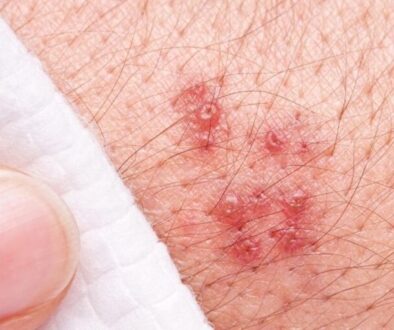Can Herpes Stop You From Getting Pregnant?

Published August 1st, 2020
Getting diagnosed with Sexually Transmitted Diseases (STDs) or Sexually Transmitted Infections (STIs) can be overwhelming for some, but they’re not the end of the world. Many of these STDs are easily treatable and not life-threatening. However, if you leave them unchecked, they could compromise your health, fertility, and pregnancy.
STDs vs. STIs
Recently, the general public has shifted from using the term Sexually Transmitted Diseases to Sexually Transmitted Infections. Infections cause diseases, which can be identified through their telltale symptoms. While a person who has an STD has an STI, a person with an STI doesn’t necessarily have an STD.
When a person has an STI, they’re effectively carriers of infectious agents. The main difference between the two is that STDs are symptomatic, while STIs can be asymptomatic (like herpes). “[STI] is a much broader and encompassing term than STD,” says Teena Chopra, corporate medical director of infection prevention and hospital epidemiology at Detroit Medical Center and Wayne State University. STIs can be just as contagious as STDs and should be treated very seriously.
For the remainder of this article, I’ll be using STI, as it’s the more general term.
Common STIs and their effects on pregnancy
Herpes
Herpes simplex virus (HSV) is rightfully one of the common concerns during pregnancy. It’s prevalent in women, infecting about one in every five of that population. There are two main subtypes of HSV in HSV-1 and HSV-2.
HSV-1 is generally associated with “oral herpes,” while HSV-2 with “genital herpes,” but either type is capable of causing both. Both types are incurable, so once you have herpes, you have it for life. Many people believe that once you get herpes, it will mark the end of your sex life. That’s not quite the case, as many patients manage to maintain a fulfilling one.
When it comes to pregnancy, herpes can cause complications, but it cannot stop you from getting pregnant. There are generally two ways expectant mothers with herpes can avoid transmission of the virus: suppression therapy and c-section childbirth.
Suppression therapy involves taking medication that decreases viral shedding of HSV. It is recommended to start medicating at 36 weeks’ gestation until birth.
The other alternative is delivery by c-section or cesarean. Infants can contract neonatal herpes when they pass through the birth canal. A cesarean is a valid option to prevent contact with the birth canal. You should monitor your body for any outbreaks during pregnancy. Generally, if you experience an outbreak within six weeks of delivery, you’d best get a cesarean.
Chlamydia
Chlamydia is one of the most widespread sexually transmitted bacteria among Americans, with about 3 million cases yearly. It is especially rampant among young women aged 15 to 24, with that age group representing over two-thirds of cases.
If left untreated, chlamydia can lead to pre-term delivery, conjunctivitis, and pneumonia. Additionally, chlamydia can lead to pelvic inflammatory disease (PID). PID has a wide range of symptoms, from mild to severe.

The complications PID can have on pregnancy and fertility are as follows:
- Ectopic pregnancy – ectopic pregnancy is pregnancy outside of the uterus, where pregnancy should occur. In its early stages, it carries out as a healthy pregnancy would. However, the most noticeable sign will be vaginal bleeding, which you should get checked immediately. The worst cases could lead to death.
- Tubo-Ovarian Abscess – is an inflammation in a woman’s fallopian tubes, ovaries, or surrounding organs. This is a potentially life-threatening condition, which will require medication or surgery.
- Tubal Factor Infertility – this is when a woman’s fallopian tubes are damaged or blocked, prohibiting fertilization. In cases of partial blockage, these could lead to ectopic pregnancies.
Gonorrhea
Like chlamydia, gonorrhea is a commonly spread bacteria in the United States. While it is more common in men than women, it can hit women during pregnancy too. In many cases, this STI can lead to miscarriages, premature birth, and low birth weight.
According to Healthline, some common symptoms are:
- discharge of yellow mucus and pus from the vagina
- painful urination
- abnormal menstrual bleeding
Gonorrhea can be passed on to children during vaginal delivery. It could cause scalp infections, upper respiratory infections, urethritis, and more. What’s scarier is that many pregnant women will not show the usual symptoms. It’s recommended to be tested for common STIs regularly during pregnancy.
Human Papillomavirus (HPV)
HPV is the most common STI in the United States, with 79 million Americans having this infection. This virus is so common that if you regularly have sex, you are bound to get at least one strain of it in your lifetime. Certain types of it can cause genital warts and cancer. Most people who have HPV will typically not even exhibit symptoms throughout their lives.
When it does show symptoms, it’s usually in the form of genital warts and abnormal Pap tests for women. Luckily, HPV and its vaccines do not lead to infertility. However, if precancerous cells are found in your cervix, the treatment may affect future pregnancies. If the procedure removes too much cervical tissue, this may lead to miscarriages.
Syphilis
Syphilis is an STI that generally goes through stages (primary, secondary, latent, and tertiary). The visual indication of syphilis are sores that are usually found around the mouth, genitals, and anus. You can get this virus by coming into direct physical contact with one of these sores.
Doctors will typically conduct a blood test to diagnose syphilis. If you’re pregnant while having this virus, you are likely to pass it onto your child. In 40% of untreated cases, the infant was stillborn or succumbed to the infection as a newborn. Babies born with congenital syphilis will have numerous health complications. If syphilis is not treated, it can spread to the brain and nervous system, even kill you.
Syphilis in pregnant women can be treated through antibiotics. However, you may need more aggressive procedures to address the damage syphilis has done.
Human Immunodeficiency Virus (HIV)
HIV is a virus that attacks your immune system. In severe cases, it evolves into Acquired immunodeficiency syndrome (AIDS), a chronic and potentially life-threatening disease.
HIV does not affect fertility, meaning you can still can pregnant despite having it. However, there is a very real chance that you may pass the virus onto your newborn. If you plan on getting pregnant, you must start taking HIV medicine if you haven’t already. Doing so will highly reduce the odds of passing this virus on.
You might also want to consider a cesarean section to reduce those odds further. After giving birth, you will likely be asked not to breastfeed as HIV can be transmitted through breastmilk.
Suffering From Herpes Type 2 Outbreaks?
Herpezine is a specially formulated all-natural mixture of ingredients proven to help relieve and prevent HSV2 outbreaks when used as directed. This safe, over-the-counter Herpes treatment contains both traditional homeopathic and scientifically proven anti-viral ingredients such as L-Lysine HCI and Bee Propolis. Learn more about Herpezine on our website and visit our pricing page to purchase your first bottle.

About The Author
Terrence Tan Ting is an industrial engineer by profession but a full time writer by passion. He loves to write about a wide range of topics from many different industries thanks to his undying curiosity.






